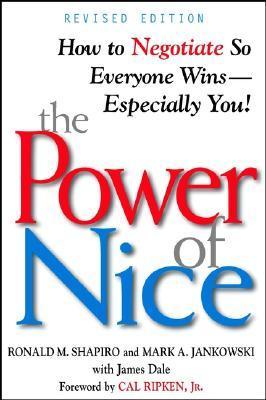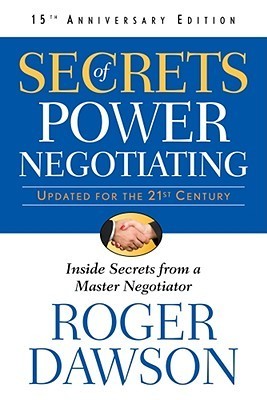
The Power of Nice: How to Negotiate So Everyone Wins-Especially You!
Book Description
Imagine transforming every negotiation into a stepping stone for mutual triumph, where kindness becomes your most potent weapon. In "The Power of Nice," Ronald M. Shapiro reveals the art of negotiating by fostering connections and building trust, inviting readers to discard the notion of adversarial bargaining. Dive into compelling strategies that showcase how empathy and respect can lead to outcomes that benefit all parties involved—even you! Packed with real-life examples and powerful insights, this guide ignites a new perspective on negotiation. Could kindness truly be the ultimate game changer in the high-stakes world of deal-making?
Quick Book Summary
"The Power of Nice" by Ronald M. Shapiro upends the traditional view of negotiation as a fierce, winner-take-all showdown, substituting it with a model anchored in kindness, empathy, and mutual respect. Shapiro, a seasoned negotiator, argues that approaching negotiations without adversarial tactics leads to better, longer-lasting results for all involved. By weaving together instructive stories from his extensive career and practical frameworks, Shapiro demonstrates that building relationships, listening actively, and seeking win-win outcomes results in not only personal gain but also trust and strong, ongoing partnerships. The book offers a step-by-step guide to the "Nice" process, equipping readers with tools to prepare thoroughly, ask the right questions, and align interests. Rather than viewing kindness as a weakness, Shapiro shows it is the smartest, most strategic approach for success in both business and life.
Summary of Key Ideas
Table of Contents
Kindness as a Core Negotiation Strategy
Shapiro begins by challenging the stereotype of negotiations as combative zero-sum games. Instead, he posits that kindness—when used strategically—is a potent force that can turn negotiations into positive, mutually beneficial exchanges. Drawing on his years as a sports agent and attorney, he shares stories where empathy and respect, rather than intimidation, unlocked deals and preserved relationships. This shift starts with reframing the mindset from "me versus you" to "us versus the problem," emphasizing collaboration as the path to lasting success.
Preparation and Active Listening
Central to effective negotiation is rigorous preparation. Shapiro advocates for thorough research, understanding both your needs and those of the other side. This includes gathering facts, anticipating challenges, and crafting creative options. Active listening is highlighted as a vital skill: by truly hearing the other party's interests and concerns, negotiators gain insights often missed in more adversarial approaches. This empathy-driven groundwork lays the foundation for meaningful connection and successful outcomes.
Building Trust and Relationships
Building trust is not a mere byproduct, but a central aim throughout the negotiation process. Shapiro showcases how demonstrating honesty, reliability, and consistency can transform wary opponents into willing collaborators. Relationships, he argues, are long-term assets. By prioritizing trust, negotiators pave the way for smoother deals, future opportunities, and a reputation that attracts partners and clients far beyond the immediate negotiation.
Seeking Win-Win Outcomes
Win-win outcomes emerge when both sides' core interests are acknowledged and satisfied. Shapiro’s "Nice" model involves identifying mutual gains, brainstorming solutions, and making principled concessions that leave both parties feeling valued. He provides actionable strategies to bridge gaps, overcome impasses, and find imaginative paths to agreement—even in high-stakes scenarios. Through real-life examples, he proves that kindness is not just moral, but a catalyst for inventive, robust deals.
Dealing with Difficult Negotiators
Not all negotiations are smooth, and some counterparties remain difficult or aggressive. For these cases, Shapiro supplies readers with methods for maintaining politeness and composure under pressure. He encourages using patience, asking clarifying questions, and keeping emotions in check. If faced with unfair tactics, he suggests drawing boundaries firmly but respectfully. This approach ensures that kindness does not equate to weakness, but rather positions you as a confident, effective negotiator able to handle any challenge while staying true to the "Nice" philosophy.
Download This Summary
Get a free PDF of this summary instantly — no email required.





